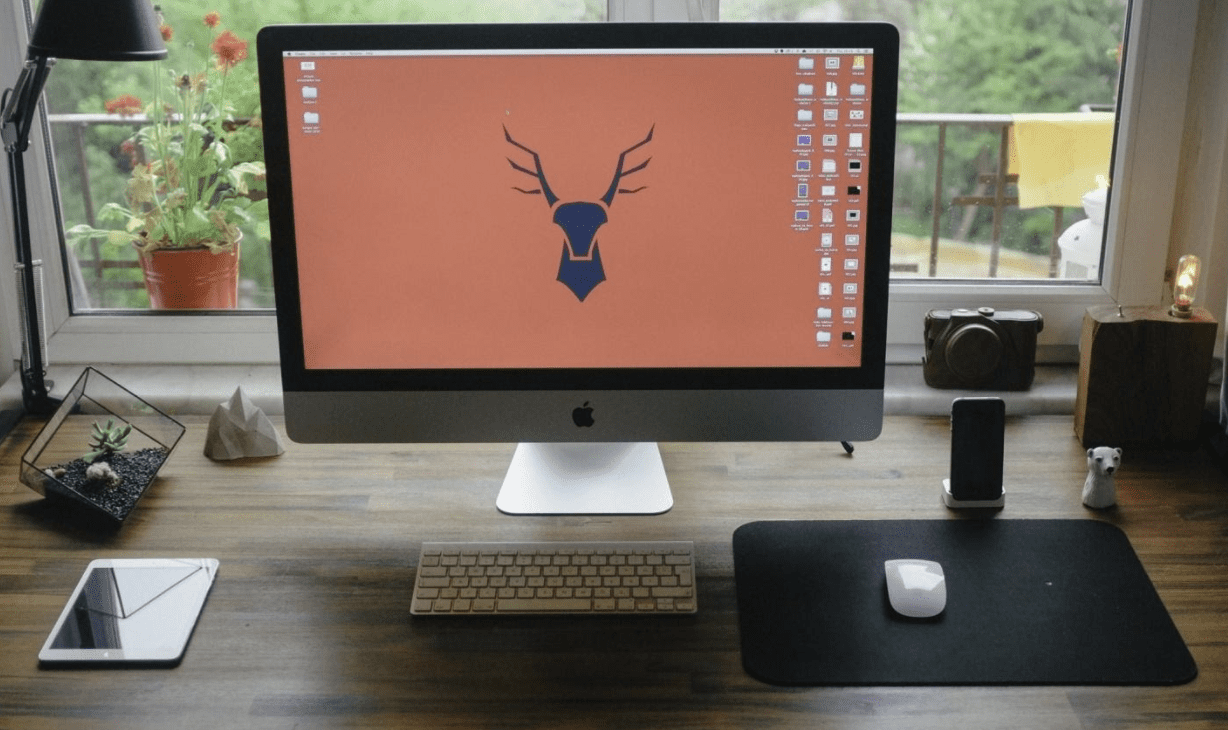It’s no secret that the personal computing market has exploded and will continue to increase over the next few years. Dig deeper into the sales numbers, you’ll find an interesting story.
Desktop computer sales have declined over the last seven years. Sales of laptops and tablets continue to increase.
What does that mean for you if you’re on the market for a new computer? It means you have a lot more affordable options than ever.
You can weigh the differences between a laptop vs. desktop computer and then find the model that fits your needs.
Laptop vs. Desktop: The Showdown
There are some distinct differences between a desktop computer vs. laptop computer. We’ll explore several categories and compare them. The most important ones are size, cost, speed, storage, power, security, and customizations.
Size
The most obvious difference is the size of a desktop compared to a laptop. Laptops are portable, which can be a huge advantage for students and business travelers.
Desktops do take up more room, but they tend to offer more power and a larger viewing area.
Cost
Desktop computers usually win in this category. You’re paying for engineering feats when you turn to laptop computers.
Think of it this way, the more you have to fit in a small space, the more that device will cost. Engineers have to figure out creative ways to fit a lot of power in laptops and keep them cool so they don’t overheat.
This doesn’t mean that all desktops are going to be cheaper than all laptops. You’ll find different price points for each category. What you will find is that there are some desktops that are in a higher price range because they’re more compact.
Speed
Desktop computers win in this head-to-head competition. Since portability isn’t an issue with desktop computers, there’s more room to add more power.
Desktops have faster processors and they can handle more peripherals. Desktops usually have more internal storage because you can fit several hard drives in the machine. You get more speed for less money with desktop computers.
External Storage
This category is a tossup. Both laptops and desktops can have external storage. You’re more likely to need external storage if you have an SSD drive installed on your machine.
These are much faster hard drives than standard hard drives, but the technology hasn’t quite advanced, yet. You can get a lot of speed, but you will have to sacrifice storage space.
SSD drives are about 500GB. If you want to have a larger SSD drive, you’ll have to pay more for it. The good news is that prices are coming down quickly, so you may get more space for less money in the near future.
In the meantime, hook up an external storage device.
Screen Size
Desktop computers give you the chance to connect a large monitor to the device. You can have a 22” or larger screen. The larger screen means that you don’t have to strain your eyes as much to read. Computer Vision Syndrome is a problem for many people, and a larger monitor could alleviate it a little.
Laptops have one screen, and you can’t switch it out. Laptop screens have between 13” – 17” monitors. Keep in mind that larger screens will add more weight.
Many people will use their laptops like a desktop and connect a larger monitor and keyboard to the device. That gives you a larger screen while remaining portable.
You can just unplug your laptop, take it with you to work, and plug it in again upon your return.
Customizations
Some desktop computers will win in the upgrade and customizations category. Tower desktops are highly customizable.
You can remove and upgrade individual components on a desktop computer pretty easily. You can do the same on some laptops, but these fall in the higher-end category.
Power Usage
Desktop computers can handle more than laptop computers, and you’re going to pay for that power. Laptops are designed to run on little power because they have to run on a battery for hours at a time.
Power usage is an issue if you live or work in an area that has frequent power outages. These outages can result in lost documents and lost productivity.
Laptops can still run on the battery when the power’s out, so you can still work.
Security
A laptop computer is stolen every 53 seconds. It’s commonplace for IT pros to have to deal with securing laptops remotely after they were stolen.
Laptops can be stolen at any time and it’s difficult for anyone to notice. You need to have them with you at all times. You can’t just leave them in the car or step away for a call at a coffee shop.
Desktop computers can’t go anywhere, but they’re not immune to security issues.
Desktop computers also have security risks, but that’s because they’re connected to the internet. All it takes is a click on a link to trigger a ransomware attack.
Shopping for Laptops or Desktops
As you start to explore the differences between desktops and laptops, you’ll find that there are classes of devices within each category.
It’s easy to get confused by the options, but we break them down for you here. Then you can read on for the factors to consider when shopping for laptops.
Types of Laptops
Starting off with laptops, you’ll find that there are business laptops, consumer laptops, and 2-in-1 laptops.
Consumer laptops are on the lower end of the spectrum. They offer basic computing specs, which fill the needs of most computer users. You can surf the internet, check email, and create office documents.
Business computers are built for business users. They are more durable, powerful, and secure. They can be easier to customize to fit any business need.
2-in-1 computers are becoming more popular because they combine the features of tablets and laptop computers. Some 2-in-1 computers have screens that detach from the keyboard, giving you a tablet. Others have a screen that flips over.
Types of Desktops
Desktop computers are generally broken down into three areas: all-in-one, tower, and compact computers.
All-in-one computers have a lot to offer because they have everything in one device. The monitor and computer itself are one unit. You just need to connect a keyboard and you can start computing right out of the box.
These tend to be the most expensive type of desktops because you’re paying for a lot of power squeezed into a smaller space.
The tower desktop is what you’re likely to think of because they appear in most offices. You have the tower either on the ground or on your desk.
The monitor attaches separately. You plug in the keyboard, mouse, and other peripherals separately.
The reason why the tower is popular is that it’s much easier to change monitors, keyboards, and upgrade separate parts. You can easily build a tower computer from scratch.
Tower computers offer the most power for the lowest cost, especially if you build your own computer.
A compact computer is an emerging class of desktop computers. They fall somewhere in between all-in-one computers and towers. Compact computers have all of the computer’s components inside a small box, like a cube. The monitor is separate.
Budget
What does your budget look like? You could get a quality laptop or desktop for about $500. If you need something powerful like a gaming desktop, you’ll need to invest more money.
Gaming devices require a powerful graphics card, RAM, and processor to handle the intense action of gaming. A slight slowdown can kill your game.
Do Your Research
You’ll find that there are certain manufacturers that stand out for their quality and durability. Other manufacturers will have common issues with their laptops or desktops.
When you’re shopping for laptops, look for issues such as battery life, durability, and overheating.
Common desktop issues are speed, noise, and screen display. Look for reviews that talk about a desktop’s noise level, and display. Remember, you can switch a display on tower desktops, but you can’t with all-in-one computers.
Shop at the Right Places
You should have a few manufacturers and models in mind for your next computer. Now you really get to go shopping.
Start with a search for the best deals on laptops to see what the best offers are. You should start with the manufacturers’ sites first because they offer the best offers and strongest warranties.
You can do a similar search if you want to get a desktop computer.
Warranties
Before you make the commitment to buy a computer, you should know what the warranty is on the device. Computer warranties range from a 1-year limited warranty to a 3-year full-service warranty.
Make sure that you understand what is covered. You could upgrade your warranty for a fee to get better coverage.
Laptop vs. Desktop: The Winner Is…
Which device wins the battle between a laptop vs. desktop? It depends on your needs. If you need portability, a laptop will be the best device for you. If portability isn’t an issue, and you want the most power for the money, then get a desktop.
Are you ready for more great tech tips? See what else is happening in the Tech and Gadgets section of this site.






